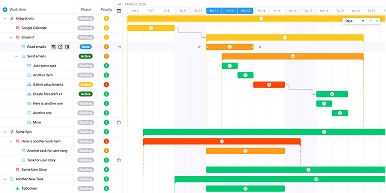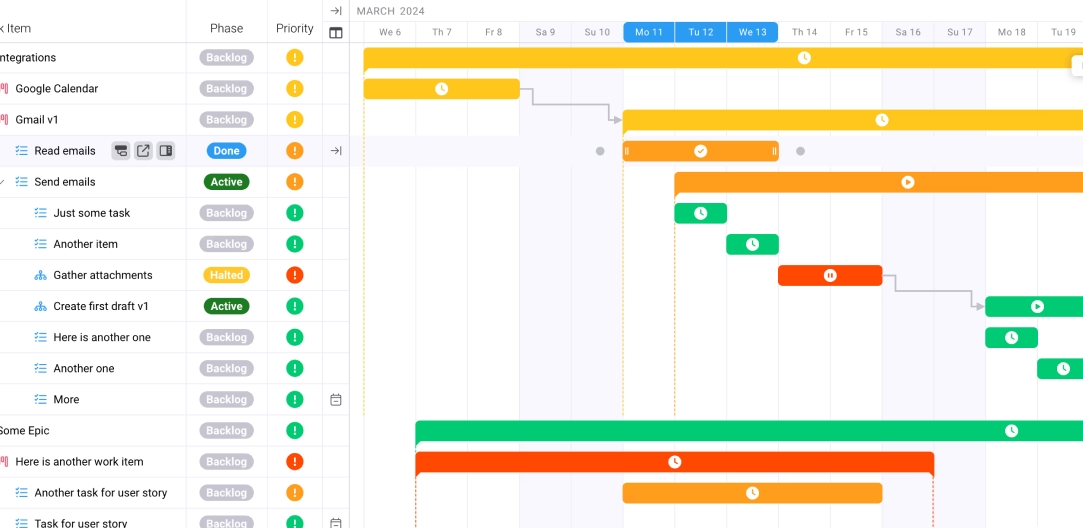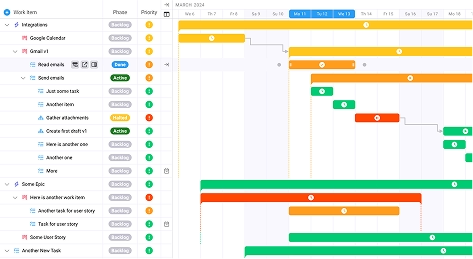
How AI-Driven Marketing Strategies Are Transforming Agencies in 2026
Key takeaways:
The marketing landscape has witnessed unprecedented transformation as artificial intelligence reshapes how agencies operate, strategize, and deliver results for their clients. “How AI-Driven Marketing Strategies Are Transforming Agencies in 2026” represents more than just a technological shift—it signals a fundamental reimagining of marketing effectiveness, client relationships, and competitive advantage. AI-Driven Marketing Strategies have evolved from experimental tools to essential infrastructure, enabling agencies to automate routine tasks, personalize customer experiences at scale, and make data-driven decisions with remarkable precision and speed.
The Current State of AI Adoption in Marketing Agencies
The statistics paint a compelling picture of AI’s growing influence in the marketing sector. The AI in marketing market is valued at 47.32 billion US dollars in 2025 and is expected to grow at a CAGR of 36.6% to reach 107.5 billion by 2028. This explosive growth reflects agencies’ recognition that AI isn’t just a competitive advantage—it’s becoming a survival necessity.
However, adoption patterns reveal interesting insights about implementation challenges. Less than half of respondents were using AI in their regular work, with the most common applications being copywriting support for email marketing, organic search and social media. This suggests that while AI adoption is accelerating, many agencies are still in the early stages of leveraging its full potential.
The transformation isn’t uniform across all agency functions. More than 50% of marketers optimize content with the help of AI, while 51% of email and SEO content optimization can be achieved with AI, and 45% of marketers use AI to brainstorm content ideas. These statistics highlight the areas where AI is making the most immediate impact, primarily in content-related workflows that traditionally consumed significant human resources.
Revolutionizing Content Creation and Campaign Development
Generative AI has fundamentally altered how agencies approach content creation and campaign development. Generative AI is set to transform content creation in marketing by 2025—delivering assets faster, cheaper, and with greater brand alignment. This transformation extends beyond simple automation to include sophisticated brand voice adaptation and multi-channel content optimization.
Modern AI tools enable agencies to maintain brand consistency across diverse content formats while dramatically reducing production timelines. The ability to generate initial drafts, create variations for A/B testing, and adapt content for different audience segments has become standard practice in forward-thinking agencies. This shift allows creative teams to focus on strategy, conceptual development, and quality refinement rather than repetitive content production tasks.
The impact on campaign development workflows is equally significant. AI-powered insights help agencies identify trending topics, predict content performance, and optimize publishing schedules based on audience behavior patterns. This data-driven approach to content strategy has replaced much of the guesswork that previously characterized campaign planning, leading to more predictable and measurable results.
Enhancing Client Relationships Through AI-Powered Personalization
Client service excellence has always been the cornerstone of successful agencies, and AI is elevating these relationships to new heights. In 2025, AI will be woven into the fabric of everyday customer service operations — including AI agents that have natural voice capabilities and the ability to act on customer requests. This evolution enables agencies to provide 24/7 client support while maintaining the personalized touch that differentiates premium services.
AI-driven personalization extends beyond client communications to campaign execution. Agencies can now deliver hyper-targeted campaigns that adapt in real-time based on user behavior, preferences, and engagement patterns. This level of personalization was previously impossible at scale, but AI makes it both feasible and cost-effective for agencies of all sizes.
The implementation of AI-powered client portals has transformed how agencies share project updates, campaign performance data, and strategic insights. These platforms provide clients with real-time access to campaign metrics, automated reporting, and predictive analytics that help them understand not just what happened, but what’s likely to happen next.
Streamlining Operations and Project Management
Operational efficiency has become a critical differentiator in the competitive agency landscape, and AI is driving significant improvements in project management and workflow optimization. Modern agencies leverage AI to automate routine administrative tasks, optimize resource allocation, and predict project timelines with greater accuracy.
Resource planning has been revolutionized through AI algorithms that analyze historical project data, team member skills, and current workloads to suggest optimal team compositions and project schedules. This intelligent approach to resource allocation helps agencies maximize utilization rates while avoiding burnout and ensuring quality deliverables. The top project management software for digital agencies in 2025 increasingly incorporates these AI-driven features as standard functionality.
Time tracking and project estimation have also benefited from AI integration. Machine learning algorithms analyze patterns in project delivery, identifying factors that typically lead to scope creep or timeline delays. This predictive capability enables agencies to provide more accurate proposals and proactively manage client expectations.
The integration of AI with billing systems has automated many aspects of financial management, from invoice generation to payment tracking and financial forecasting. This automation reduces administrative overhead while providing real-time insights into agency profitability and cash flow projections.
Data-Driven Decision Making and Predictive Analytics
The ability to make informed, data-driven decisions has become a fundamental competitive advantage, and AI is making sophisticated analytics accessible to agencies of all sizes. AI is transforming marketing by automating repetitive workflows, enabling real-time personalization and optimizing campaigns with predictive analytics. This transformation allows agencies to move beyond reactive campaign management to proactive strategy optimization.
Predictive analytics powered by AI helps agencies anticipate market trends, identify emerging opportunities, and allocate budgets more effectively. By analyzing vast amounts of historical performance data, market conditions, and consumer behavior patterns, AI systems can suggest campaign adjustments before performance issues become apparent through traditional metrics.
The implementation of AI-driven analytics platforms enables agencies to provide clients with deeper insights into campaign performance and market opportunities. These platforms can identify correlation patterns that human analysts might miss, uncovering optimization opportunities that drive improved ROI across all campaign elements.
Overcoming Implementation Challenges
Despite the clear benefits, implementing AI-driven marketing strategies presents significant challenges that agencies must navigate carefully. Twenty-seven percent of respondents whose organizations use gen AI say that employees review all content created by gen AI before it is used, highlighting the importance of human oversight in AI implementation.
Change management represents one of the most significant hurdles in AI adoption. Team members may fear that AI will replace their roles, requiring leadership to clearly communicate how AI augments rather than replaces human capabilities. Successful agencies focus on retraining programs that help team members develop AI collaboration skills and identify new value-creation opportunities.
Technical integration challenges also pose obstacles, particularly for agencies with legacy systems or limited technical resources. The key is to start with specific use cases that demonstrate clear ROI before expanding to more complex implementations. Many agencies begin with AI-powered content creation tools before moving to more sophisticated predictive analytics and automation systems.
Data quality and privacy considerations add another layer of complexity. Agencies must ensure that AI systems have access to clean, relevant data while maintaining compliance with privacy regulations and client confidentiality requirements. This often requires investment in data governance frameworks and security infrastructure.
The Evolution of Agency Roles and Skills
The integration of AI into marketing operations is fundamentally changing the roles and skill requirements within agencies. Instead of focusing on the 92 million jobs expected to be displaced by 2030, leaders could plan for the projected 170 million new ones and the new skills those will require. This perspective shift is crucial for agencies preparing their teams for the AI-augmented future.
Traditional roles are evolving to incorporate AI collaboration skills. Content creators now work alongside AI tools to produce higher volumes of personalized content, while data analysts focus on interpreting AI-generated insights and translating them into strategic recommendations. Account managers leverage AI-powered CRM systems to anticipate client needs and identify expansion opportunities.
New specialist roles are emerging, including AI prompt engineers who optimize AI tool interactions, AI ethics specialists who ensure responsible AI use, and AI-human collaboration coordinators who design workflows that maximize the strengths of both human creativity and AI efficiency. Understanding these emerging marketing technologies every agency leader needs to watch in 2025 is crucial for workforce planning.
The most successful agencies are investing heavily in training programs that help existing team members develop AI fluency while recruiting new talent with both traditional marketing skills and AI expertise. This hybrid approach ensures continuity while building capabilities for future growth.
Measuring Success and ROI in AI Implementation
Quantifying the return on investment from AI initiatives requires new metrics and measurement frameworks that go beyond traditional campaign performance indicators. 28.24% of marketers report that AI has significantly enhanced their competitive edge, while 46.36% feel AI has somewhat improved their strategic position. These statistics indicate that AI’s value often extends beyond immediate cost savings to include strategic advantages that are harder to quantify.
Agencies are developing comprehensive measurement frameworks that track both efficiency gains and quality improvements. Time savings from automated content creation, improved accuracy in campaign targeting, and enhanced client satisfaction scores all contribute to AI ROI calculations. However, the most significant benefits often emerge over time as AI systems learn from accumulated data and experience.
The top 5 weekly KPIs for marketing project managers now frequently include AI-specific metrics such as automation adoption rates, AI-generated content approval rates, and the accuracy of AI-driven predictions. These metrics help agencies optimize their AI implementations and demonstrate value to stakeholders.
Long-term value measurement includes factors such as improved employee satisfaction due to reduced repetitive work, enhanced client retention through better service delivery, and increased capacity to take on additional projects without proportional staff increases. These strategic benefits often justify AI investments even when immediate cost savings are modest.
Future Trends and Strategic Implications
Looking ahead, several trends will shape the continued evolution of AI-driven marketing strategies in agencies. Integrating Agentic AI in marketing strategies is poised to revolutionize industry norms, empowering AI systems to operate with autonomy and decision-making capabilities. This advancement toward autonomous AI agents represents the next frontier in marketing automation.
The development of more sophisticated AI agents that can handle complex, multi-step marketing processes autonomously will further transform agency operations. These systems will be capable of managing entire campaign lifecycles, from initial research and strategy development to execution and optimization, with minimal human intervention.
Integration capabilities will continue to expand, with AI systems becoming more adept at working across different platforms and data sources. This interoperability will enable agencies to create more cohesive and effective marketing ecosystems that deliver consistent experiences across all client touchpoints.
Ethical AI and transparency will become increasingly important as AI systems take on more decision-making responsibilities. Agencies will need to implement robust governance frameworks that ensure AI decisions are explainable, fair, and aligned with client values and regulatory requirements.
Building Competitive Advantage Through AI Excellence
The agencies that will thrive in the AI-driven future are those that view AI not as a replacement for human capabilities but as an amplifier of human potential. As AI becomes intrinsic to operations and market offerings, companies will need systematic, transparent approaches to AI governance. This systematic approach to AI integration becomes a source of competitive differentiation.
Excellence in AI implementation requires more than just adopting the latest tools. It demands a comprehensive strategy that includes technology selection, team training, process redesign, and performance measurement. Agencies that master this holistic approach can offer clients capabilities that competitors simply cannot match.
The most successful agencies are those that maintain focus on core marketing principles while leveraging AI to execute these principles more effectively. They understand that AI amplifies existing capabilities rather than replacing the fundamental skills of understanding audiences, crafting compelling messages, and building meaningful relationships between brands and consumers.
Strategic partnerships with AI technology providers, continuous learning initiatives, and investment in data infrastructure all contribute to building sustainable AI-driven competitive advantages. These investments pay dividends not just in operational efficiency but in the ability to attract and retain both top talent and premium clients who demand cutting-edge capabilities.
Conclusion
The transformation of marketing agencies through AI-Driven Marketing Strategies represents one of the most significant shifts in the industry’s history. As we’ve explored throughout this analysis, the impact extends far beyond simple automation to encompass fundamental changes in how agencies create value, serve clients, and compete in the marketplace.
The evidence is clear that agencies embracing AI-driven approaches are gaining significant competitive advantages while those hesitating risk being left behind. However, successful implementation requires more than just technology adoption—it demands strategic thinking, careful change management, and a commitment to continuous learning and adaptation.
The future belongs to agencies that can seamlessly blend human creativity and strategic thinking with AI-powered efficiency and insights. As we move deeper into 2026 and beyond, “How AI-Driven Marketing Strategies Are Transforming Agencies in 2026” will be remembered as a pivotal moment when the marketing industry fundamentally reimagined its potential. The agencies that master this transformation today will be the industry leaders of tomorrow, equipped with AI-Driven Marketing Strategies that deliver unprecedented value to their clients and sustainable growth for their organizations.









